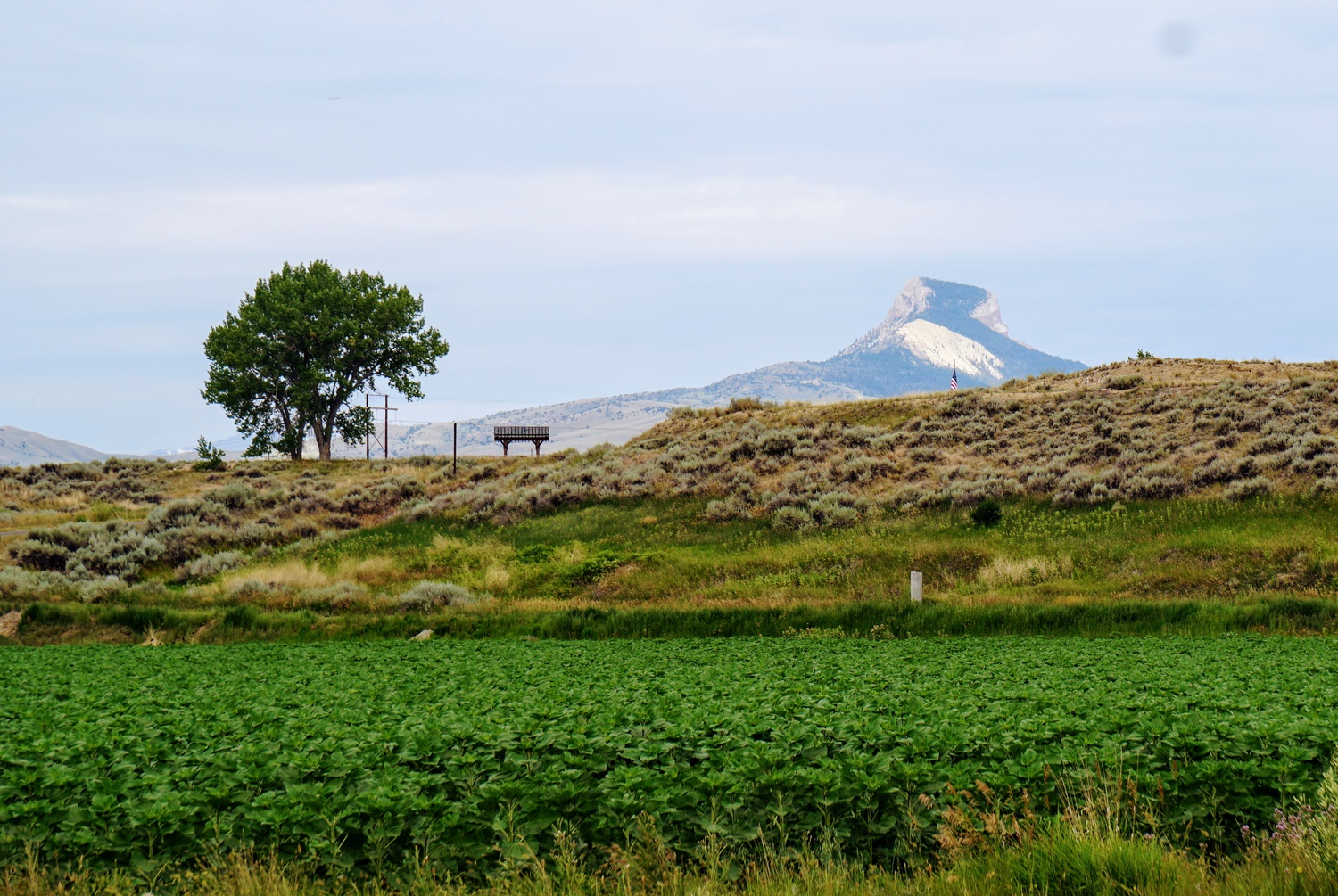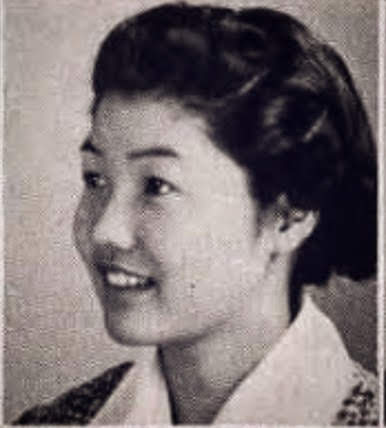
Searching for Heart Mountain
It was all a lie — and yet, I had come to believe it so fervently, so desperately.
Here’s how the memory goes: It’s late December 2001, and with the boost that my car seat provides, I can see out the window and into the train station parking lot. This late on a Friday night, it’s mostly deserted. I take in the soft glow of the Christmas lights draped over trees, see their reflections glint in the stale, graying snow. A carpet of road salt crunches beneath our tires as the car turns, pulls parallel to the train platform. Any minute now, a headlight will pierce the darkness, and a train will rumble toward the platform; my father will disembark, excited to see me and my mom.
But in the minutes before the train arrives, I swear I remember seeing them: Three or four cars, scattered across the empty lot, their hoods dusted by an undisturbed sheet of snow.
Strange, four-year-old me thinks. It had last snowed on Monday: The cars must have been sedentary for at least a week.
“Why?” I ask my mother, gesturing towards them.
I can’t recall exactly what she says. But I remember her smile fading; I remember seeing confusion, then recognition, and finally anguish creep across her face. Somehow, she explains to her overly inquisitive toddler that the cars haven’t been moved for months.
On a Tuesday morning in September, the cars’ drivers had parked in their usual spots and commuted to work like usual. It was that day— Sept 11, another vivid memory, perhaps my earliest — and the owners of the cars did not return. In the weeks that followed, their loved ones had been unable to bring themselves to collect the cars from the train station. Doing this, my mother explains, would mean acknowledging that the drivers were gone, forever.
So there the cars sat, glistening under the Christmas lights, the blankets of snow on their hoods disturbed only by the gentle cuts of a breeze.
Every day, my mom tells me, she thanks God that my father and my brother came home from the city that day.
The train arrives. My dad steps off, spots us, smiles and waves like he always does. We collect him and drive home.
Sept. 11 left a wound in my small Connecticut community. We were a town of commuters: Everyone knew someone who had died in the towers. Everyone knew who those cars belonged to.
When we arrive back home that night, I curl up on the couch with Gra — the nickname my siblings and I had ascribed to our grandmother on my father’s side, the Japanese side of our family — as the evening news begins.
“How was the train station?” she asks, resting one knitting needle against the other.
As she transforms the spools of thick yarn into a sweater, I recount what my mom told me. I stare up into her deep brown eyes, ringed with soft wrinkles, watching the curls of her dark hair bounce in time with the clicking of her needles. I ask Gra what all of this means, why, while watching the news together (coverage of the unfolding war in Afghanistan), she so often shakes her head in sadness.
She pauses, placing the needles, yarn, and blossoming sweater on the table.
“This is a time of great pain in our country, Andrew,” she says, “and with pain comes fear.” She sees that I am confused, and explains that when she was a girl, America had experienced a different attack, and that she and other people who looked like her, who looked like us, had been forced from their homes and relocated into camps. She and her family were taken far away, to a desolate place in Wyoming called Heart Mountain, and held for the duration of the Second World War.
I couldn’t imagine anyone ever thinking Gra, who brought freshly-knitted sweaters of thick, itchy yarn for us when she and my grandpa visited, was a threat. I tell her this. A smile graces her lips, then fades. “People don’t think when they’re scared,” she says.
Before picking back up her needles, she makes me promise that I will never allow what happened to her to happen to anyone else, even if I’m scared. I nod my head vigorously, solemnly, pretending to understand the conversation’s gravity.
That sequence — train station, cars, my grandmother and her knitting needles — always felt so vivid, so real.

**
Growing up in homogeneous, suburban Connecticut, it was the memory of that conversation with Gra that gave meaning to being Japanese-American. I didn’t speak Japanese and couldn’t handle chopsticks with much dexterity; beyond my family, I didn’t even know any other people of Japanese-American ancestry — but I had inherited a special story. Gra had charged my siblings and me with a mission, a purpose: I had made a promise.
I did whatever I could to fulfill my vow to Gra, to do what I thought would ensure that America never repeated 1942’s injustices. I commuted to high school in New York, catching a train every morning before the sun rose. I worked hard in my classes. I applied to Harvard.
Before college, I accepted a scholarship to study Arabic for a year in Rabat, Morocco. I had become old enough to understand Gra’s parallels between the experiences of Japanese-Americans then and Arabs and Muslims now; learning Arabic felt like a natural next step.
Only when I arrived at Harvard did I learn that I had internalized a false memory. While comping The Crimson, I wrote a story about the abandoned cars in the parking lot and their influence on my choices. But when I sent it to my mom and dad, they were confused: There had been no cars left at the train station months after Sept. 11; Gra had rarely, if ever, spoken of Heart Mountain before her death in 2003, let alone with me, her toddler grandson. She had left behind no morally clarifying call to action.

**
When the wifi in the Istanbul apartment cuts out — as it does, frequently — my gaze drifts from my family members, frozen in place on my phone screen, to the flock of seagulls suspended outside the apartment’s window. If I reach my arm beyond the balcony, perhaps I could touch them: Though the seagulls beat their wings, diving and swooping forwards, they are always buffeted back to the same place, just beyond my reach, held in stasis by the Bosporus winds. In my most curious moments, I wonder what would happen if they simply gave in to the wind, folded their wings. Surely the breeze would whisk them down the Bosporus, all the way over the Marmara, the Mediterranean, the Atlantic, maybe even the Long Island Sound. Perhaps it would deposit them in the small Connecticut town I call home.
My phone buzzes. The Facetime call has failed. I glance downwards and reinitiate connection.
“You’re back! It’s pretty desolate here, Andrew — beautiful, but desolate,” my dad says, continuing from where he was cutoff. I had seen pictures of Heart Mountain, the rolling plains and blue horizon interrupted only by the slab of granite that gives the place its name. He’s right: It’s beautiful. “Hard to imagine Gra here though,” he adds. I had also seen pictures of the barbed wire, guard towers, and barracks that stood in the same place.
This summer, I found myself in a curious situation: My parents and two of my older siblings had traveled to Heart Mountain for a “pilgrimage” organized for the descendants of those interned there, while I was in Istanbul, working as an Arabic translator and reporting on the refugee crisis.
Two years had elapsed since I learned that my conversation with Gra had never taken place.
Coming to terms with that revelation — I haven’t completely, not yet — means realizing that perhaps I had never known Gra at all, and now, years after her death, I never will. I will never know what she thought of internment or its parallels to the modern day. I had never made the promise that for so long animated my choices.
Yet when my family visited Heart Mountain together for the first time this summer, I went to Turkey instead, knowing that I would miss the trip, miss seeing the place where she had been interned. My family didn’t expect to learn anything groundbreaking from the pilgrimage — but I felt like I was actively turning my back on “the truth,” whatever that was, chasing instead after this false memory, this ephemeral, impossible promise.
What would happen, I would wonder, watching the seagulls, if I ended the pursuit that had taken me to New York, Rabat, Harvard, and finally Istanbul, if I folded my wings and allowed the breeze to carry me far, far down the Bosporus?
Maybe I would wind up home. But I would never skip inside, mom and dad in tow, never again curl up with Gra on the couch. Never would I be able to ask her the questions that so desperately demanded answers.
I have long outgrown every sweater she ever knit for me. But I’m not sure I’ll ever outgrow the pledge I genuinely believed I had made to her.
I haven’t folded my wings yet. The seagulls struggle against the wind, and so do I.
I will fulfill the promise I made, if not to Gra, then in her honor.
The Christmas lights, the cars; the fear, the pain, the call-to-action: It was, after all, all a lie. But every day I choose to believe in it; every day I choose to trust the truths enshrined within it, to fight fervently, desperately for the future I imagine Gra would have wanted.



